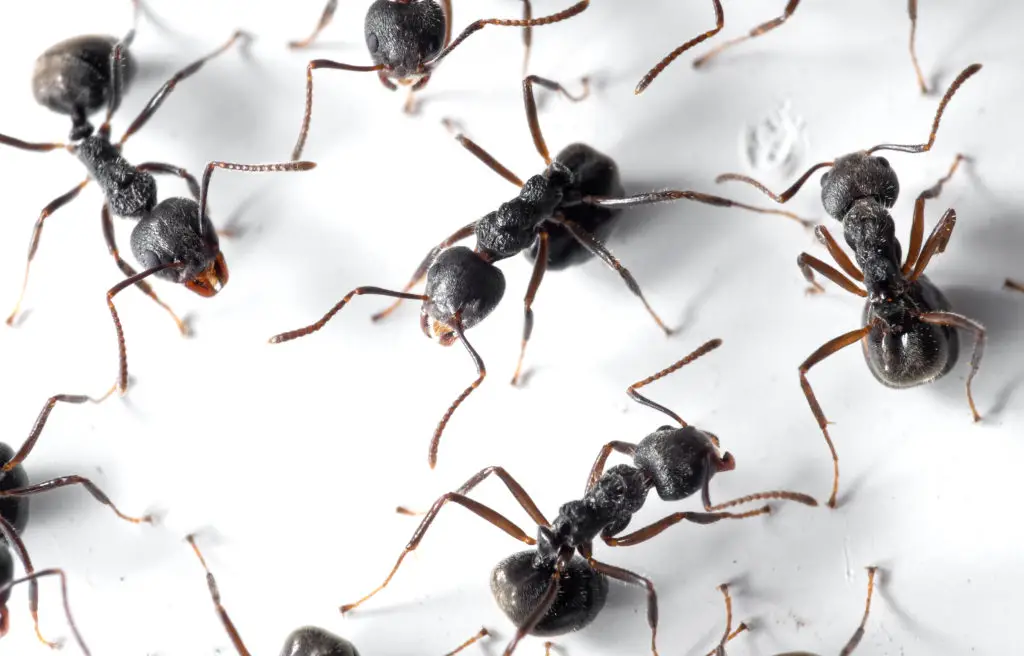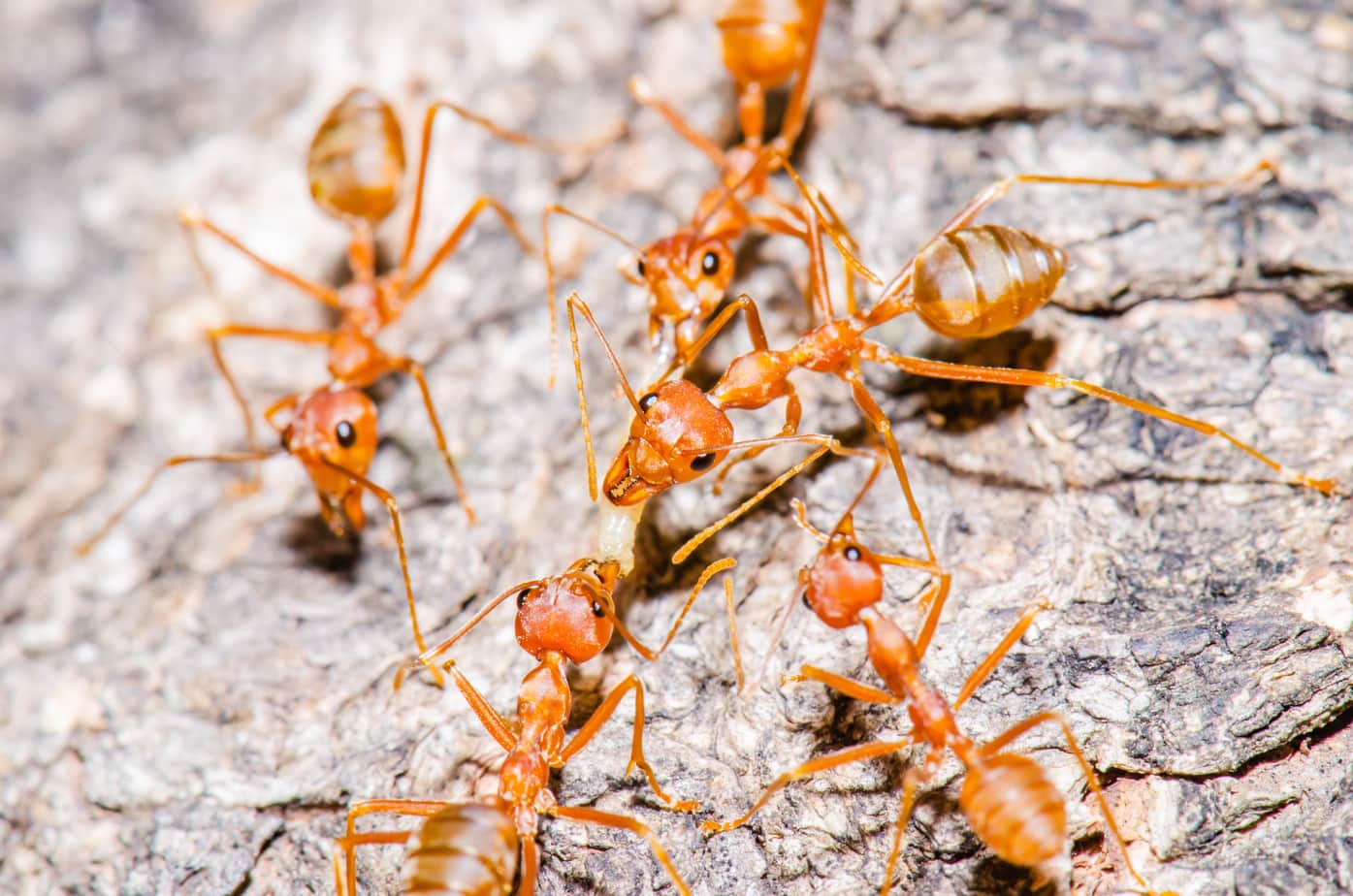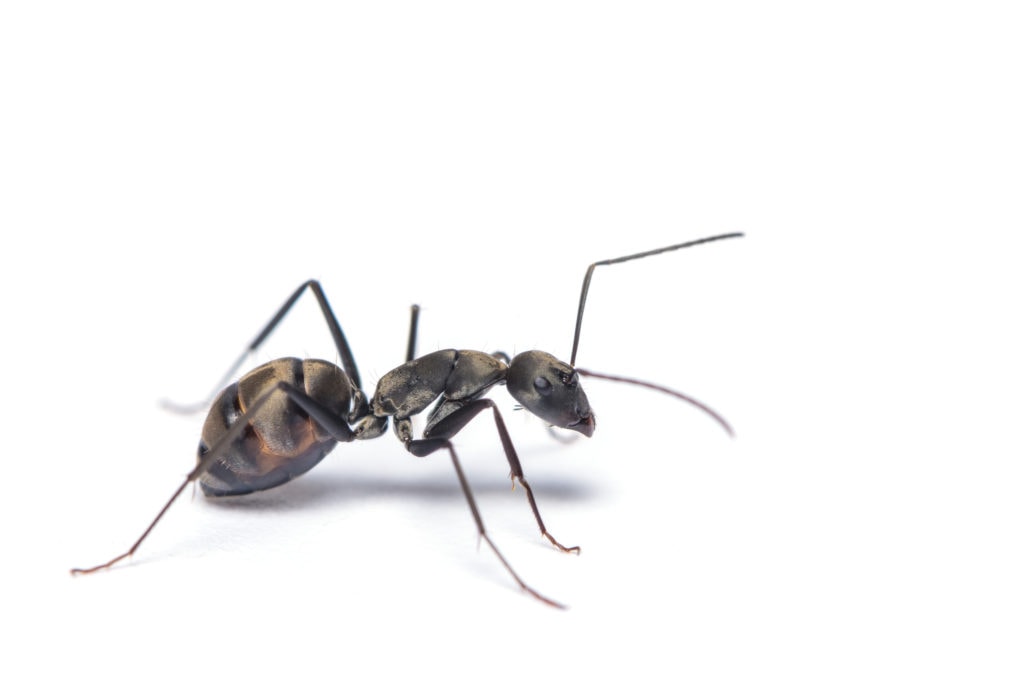
Uh oh! You found an ant in your rabbit’s cage! Will ants hurt your furry friend?
A colony of regular black ants are harmful to your rabbits when found in their cage. It may be a sign that there is a cleanliness problem, and can be very dangerous to your pet. In addition, red ants are even more harmful to rabbits. You will need to take immediate action to get rid of fire ants.
One of the best things you can do for your rabbit is to make sure he or she has a clean living space. This will ensure the ants are taken care of as well. Check out this article about How to Keep Rabbits’ Cage Clean: 5 Tips That Work for an easy step-by-step guide.
Now, let’s talk ants!
Black Ants Indoors
If by chance you find a single ant in your rabbit’s indoor cage, it is probably just an isolated incident. Ants sometimes make it inside the house. Go ahead and remove the little insect and don’t worry!
However, if you find a long line of ants infesting your rabbit’s indoor cage, oh boy, have you got a problem! The ants are most likely attracted to your rabbit’s litter box, food bowl, or a dirty cage. Let’s make a list of all the things you need to do to keep your rabbit safe from these ants.
Step 1
Remove your rabbit from the cage. Move them to a room where the ants are not and make sure you don’t take any ants with you.
Step 2
Follow the line of ants to discover where they are entering the house. This may take a while. Circle the outside of your house until you find where the ants are getting in.
Step 3
Take action to get rid of the ants. There are several things that you can try to kill off the ants. Some things may work while others may not. With ants, it’s a trial and error to see which will work. Jump to the last section of the article to find rabbit-safe solutions to get rid of ants.
Step 4
Clean the cage. If your rabbit’s cage has been infested with ants, you will need to clean everything. Wash the cage, the food bowl, the water bottle, the litter box, the bedding, and any toys. You do not want your rabbit to get sick from a dirty cage if that is what attracted the ants in the first place.
Caution! Fire Ants!

FIRE ANTS ARE EXTREMELY HARMFUL TO RABBITS. These ants will eat anything, including baby rabbits! Their venom from stinging will also hurt your older rabbits. If you find red, rust-colored ants anywhere near your rabbits, please take immediate action to get rid of them! In the last section, we list rabbit-safe techniques for killing and warding off ants. The best solution for fire ants is beneficial nematodes or hot water.
What About Carpenter Ants?
Carpenter ants are ants that eat wood. Although they will not bite or sting your rabbit, they will eat any of the wood or hay around your rabbit.
If carpenter ants have infested your rabbit’s outside hutch, they will probably be eating your rabbit’s cage and hay bedding. Move your rabbit to a safe location and completely hose down your rabbit’s cage. Get rid of any hay bedding that may have ants and replace it with fresh hay.
If your rabbit is inside, you will not have to worry much about their metal or plastic cage. But if carpenter ants are found inside, you will need to remove any hay bedding that may have become infested and replace it with fresh hay.

Carpenter ants being found inside is very concerning. That means you may have them inside the walls of your house. Please take immediate action to exterminate the ants that may destroy the integrity of your house.
Rabbit Safe Solutions to Get Rid of Ants
Though you want to kill and ward off the ant infestation, you don’t want to harm your rabbit in the process. Please be careful when using chemical pesticides. They may kill the bugs, but they may also kill your rabbit. Below is a list of rabbit safe solutions to ant infestations:
- Diatomaceous earth, food-grade. Many rabbit owners on RabbitsOnline.net, an online forum specifically about rabbits, have shared that they used this chemical to kill ants because it is safe for pets. Make sure to read any and all labels on the bag of this chemical to make sure that the one you get is indeed safe for pets.
- Mint. This is a natural bug repellent that is also safe for your rabbit. In fact, mint is nutritional for rabbits. They can eat the leaves, stems, and flowers of mint. Ants hate the smell of peppermint and will avoid it. You can plant mint outside to repel them or use peppermint oil and wipe down the areas where the ants have been hanging out.
- Vinegar or lemon juice. Use a 50/50 ratio of vinegar and water or a 1/3 ratio of lemon juice and water as an all-purpose spray. Simply spray the solution on the ants to kill them. This is an excellent, quick option that is also safe for your rabbit.
- Cayenne pepper or black pepper. Ants detest cayenne and black pepper. Once you locate where the infestation is entering, sprinkle the cayenne or pepper around the ants or create a little wall with the powder. This will not kill the ants but will deter them from entering the house again. Be careful sprinkling cayenne or pepper in areas where your rabbit might be. They will not be happy if they ingest it.
- Cinnamon. When ants inhale cinnamon, they suffocate and die. You can sprinkle it around the ants or the anthill to kill them. You can also use cinnamon essential oil and wipe down the areas where they are entering the house. Rabbits can ingest small amounts of cinnamon and be okay.
- Beneficial nematodes. This type of solution needs an ideal circumstance to be most effective. Spray the nematodes around the anthill to kill the ants. However, if the ground is too hot, disturbed by other animals, or moves from water, it will not be effective.
- Hot water. Pour hot water on the anthill. This will disturb the ants and cause them to move. However, hot water will not work on a line of ants inside your house. Only on the anthill.
